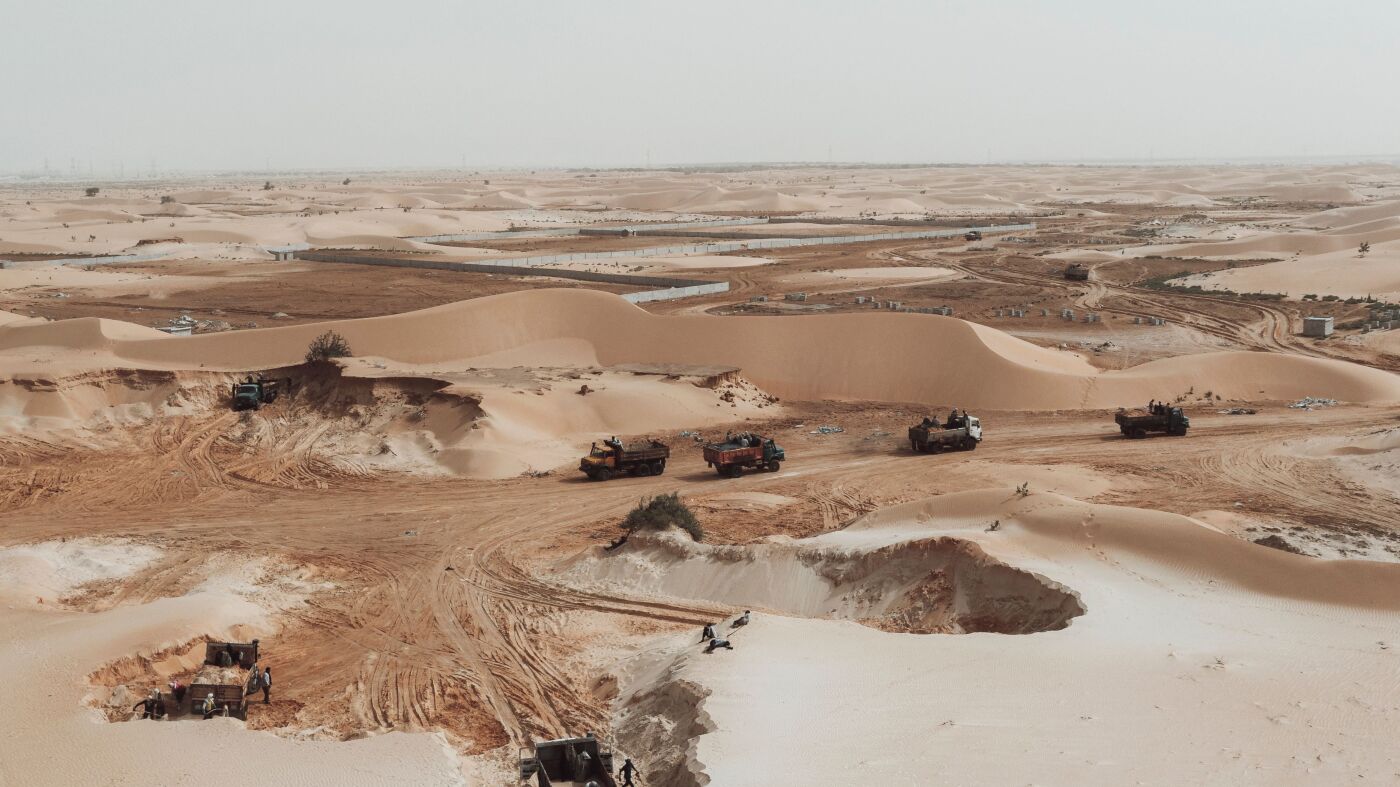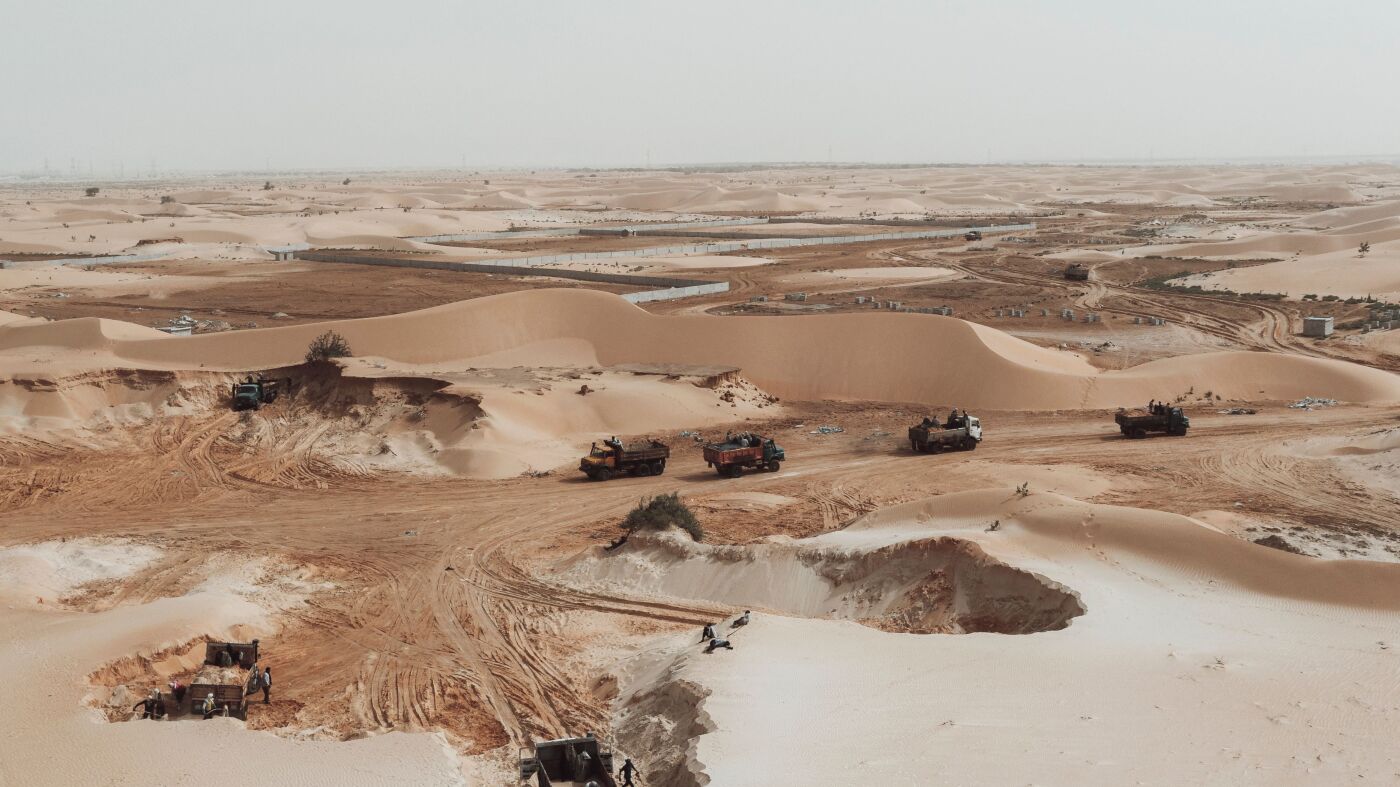Donald Trump’s meeting with the presidents of Gabon, Guinea-Bissau, Liberia, Mauritania, and Senegal at the White House was a significant diplomatic event that extended beyond the surface-level focus on commercial opportunities. The gathering, while framed by the Trump administration as a chance to explore economic ties, carried deeper strategic, security, and geopolitical implications for both the United States and the African nations involved.
The Official Narrative: Commerce and Trade
The Trump administration’s emphasis on commercial opportunities aligns with its broader foreign policy approach, which prioritizes transactional relationships over traditional aid-based engagements. The White House has repeatedly highlighted Africa’s untapped economic potential, positioning the continent as a key market for American businesses. This focus on trade and investment reflects a shift in US policy, one that seeks to counterbalance China’s growing influence in Africa. China has been aggressively investing in African infrastructure, resources, and trade, and the Trump administration appears determined to position the United States as a viable alternative.
The five African nations invited to the meeting—Gabon, Guinea-Bissau, Liberia, Mauritania, and Senegal—represent a diverse range of economic and political landscapes. Gabon, for instance, is rich in natural resources, particularly oil and timber, while Liberia has been working to rebuild its economy following years of civil conflict. Mauritania and Senegal are strategically positioned along key trade routes, and Guinea-Bissau, though smaller, offers opportunities in agriculture and fisheries. The Trump administration’s interest in these countries suggests a calculated effort to engage with nations that offer both immediate economic benefits and long-term strategic value.
Beyond the Bottom Line: Strategic and Security Considerations
While commerce was undoubtedly a central theme, the meeting also served as a platform for addressing broader geopolitical and security concerns. The five invited nations are all located along Africa’s Atlantic coast, a region of significant strategic importance. This location provides access to vital shipping lanes, which are crucial for global trade and military logistics. By engaging with these countries, the United States can strengthen its presence in a region where China has been expanding its influence through infrastructure projects, such as ports and railways.
Security was another likely topic of discussion. Several of the invited nations face serious security challenges, including terrorism, piracy, and cross-border crime. For example, Mauritania has been a key partner in the fight against terrorism in the Sahel region, while Senegal has been working to combat drug trafficking and organized crime. Strengthening security cooperation with these countries could help the United States address these threats and protect its own interests in the region. Discussions may have included military assistance, intelligence sharing, and joint training exercises, all of which could enhance regional stability and align with US security priorities.
Legitimizing Leadership
For the African presidents, the meeting offered a valuable opportunity to bolster their international standing and enhance their credibility with investors and partners. A visit to the White House can lend legitimacy to leaders, particularly in countries where political stability is still fragile. For instance, Guinea-Bissau has a history of political instability, and its president, Umaro Sissoco Embaló, may have sought to use the meeting to reinforce his leadership and attract foreign investment. Similarly, Liberian President George Weah, a former soccer star, has been working to rebuild his country’s economy and may have seen the meeting as a chance to secure US support for his initiatives.
The meeting also provided an opportunity for the African leaders to present their countries as attractive destinations for American investment. By engaging directly with the Trump administration, they could highlight their nations’ economic potential and seek partnerships that go beyond traditional aid. This approach aligns with a broader trend in Africa, where many leaders are increasingly focused on economic development and self-sufficiency rather than reliance on foreign assistance.
A Selective Invitation: Why These Five?
The selection of these five nations raises questions about the criteria used by the Trump administration. While all five share a coastal location, they differ significantly in terms of political systems, economic development, and social structures. Several factors likely influenced the selection:
Potential Challenges and Criticisms
Despite the potential benefits of the meeting, several challenges and criticisms are worth considering. One of the most significant is the perception of selectivity. Inviting only five out of 54 African nations could be seen as divisive and create resentment among those excluded. This could undermine US efforts to build strong relationships with the continent as a whole. Additionally, the emphasis on commercial opportunities could be interpreted as a narrow and self-serving approach to US-Africa relations. Critics may argue that the United States should also prioritize issues such as democracy, human rights, and sustainable development.
Another challenge is the impact of US aid cuts. The meeting takes place against a backdrop of significant reductions in US foreign aid, which could undermine the credibility of the administration’s commitment to Africa. African leaders may be skeptical of the United States’ intentions if it is simultaneously seeking to expand commercial ties while reducing its financial assistance. Furthermore, Trump’s past comments about Africa, including his use of disparaging language, could create a negative perception of the meeting and undermine its potential for success.
The Agenda: Trade, Investment, and Security
While the White House has been vague about the specific agenda, it is likely that the discussions centered on trade, investment, and security. On the trade front, the Trump administration is likely to push for agreements that benefit American companies. This could include reducing tariffs, removing regulatory barriers, and protecting intellectual property rights. The African leaders, meanwhile, may seek to negotiate deals that promote their own economic development, such as increasing exports to the United States and attracting foreign investment.
In terms of investment, the United States may encourage American companies to invest in the five African nations. This could include providing financial incentives, such as tax breaks and loan guarantees. The African leaders may seek to attract investment in key sectors, such as infrastructure, energy, and agriculture. For example, Senegal has been working to develop its energy sector, particularly in renewable energy, and may have sought US support for these initiatives.
On the security front, the United States may offer to provide military assistance and training to the five African nations. This could include supplying weapons, equipment, and technology. The African leaders may seek assistance in combating terrorism, piracy, and cross-border crime. For instance, Mauritania has been a key partner in the fight against terrorism in the Sahel region, and the United States may have offered to strengthen this cooperation.
A Meeting with Mixed Signals
The meeting between President Trump and the five African leaders was a complex event with multiple layers of meaning. While the official focus was on commercial opportunities, strategic and security considerations were also likely to play a significant role. The selection of the five invited nations raised questions about the criteria used by the Trump administration, and the meeting faced several potential challenges and criticisms. Ultimately, the success of the meeting will depend on the ability of both sides to find common ground and build a mutually beneficial relationship.
Beyond the Handshake: Lasting Impact
The true measure of this summit’s success will lie not in the photo ops or press releases, but in the long-term impact on US-Africa relations. Will it usher in a new era of mutually beneficial partnerships based on trade and investment? Or will it be remembered as a fleeting encounter driven by narrow self-interests? Only time will tell. However, one thing is certain: the world will be watching closely to see what emerges from this meeting and how it shapes the future of US engagement with the African continent. The meeting could mark a turning point in US-Africa relations, one that prioritizes economic ties over traditional aid-based engagements. If successful, it could pave the way for deeper cooperation on trade, investment, and security. However, if the meeting is seen as a superficial gesture, it could further strain US-Africa relations and undermine efforts to build a more balanced and mutually beneficial partnership.








